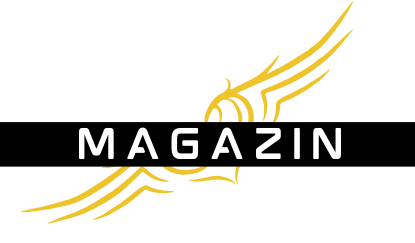In a world constantly evolving with technological advancements, blockchain has emerged as a groundbreaking force reshaping multiple industries. From supply chains to healthcare systems, the integration of blockchain showcases a transformative potential to enhance security, traceability, and transparency. As we unravel this modern marvel, we’ll explore how blockchain technology is redefining how industries manage data, ensuring integrity in transactions and revolutionizing the way we perceive networks.
Blockchain and Supply Chain Management
The traditional supply chain landscape has long been a complex web, often plagued by inefficiencies and security concerns. Blockchain technology offers an innovative solution, providing a decentralized platform that ensures transparent and secure tracking from the source to the consumer.
When we think of supply chains, one term that often comes to mind is “traceability.” Blockchain stands at the forefront, revolutionizing this concept. By utilizing a chain of immutable records, blockchain ensures that each step in a product’s journey is documented with precision. This transparency allows businesses to authenticate the provenance of their goods, mitigating risks and enhancing consumer trust.
Moreover, blockchain’s ability to create secure networks is a game-changer in combating fraud. By storing transaction data on a distributed ledger, every participant in the supply chain has access to real-time, verified information, reducing reliance on a central authority. This decentralized approach secures the data against manipulation, ensuring that the information remains reliable and tamper-proof.
Additionally, integrating blockchain into the supply chain enhances efficiency. Automated smart contracts streamline processes, reducing the need for intermediaries and cutting down transaction times. This not only speeds up operations but also slashes costs, providing a more sustainable and cost-effective solution for businesses.
With blockchain, industries can finally achieve a seamless blend of security, traceability, and efficiency, leading to a revolution in supply chain management that is as beneficial for businesses as it is for consumers.
Healthcare Systems and Blockchain Solutions
In the realm of healthcare, the need for a secure and efficient data management system is paramount. Blockchain technology offers a transformative solution, promising to revolutionize patient data handling and enhance transparency throughout the healthcare process.
One of the most significant challenges in healthcare is maintaining the integrity and security of sensitive information. Blockchain’s decentralized nature ensures that patient records are stored on a secure network, where each entry is time-stamped and immutable. This approach not only safeguards against unauthorized access but also provides patients with control over their data, empowering them to manage their health records effectively.
Beyond security, blockchain enhances traceability within healthcare systems. By tracking each transaction in the patient’s healthcare journey—from initial diagnosis to treatment and follow-up—blockchain ensures accuracy in medical records and reduces the risk of errors. This traceability guarantees that healthcare providers have access to comprehensive and up-to-date information, which is vital for delivering high-quality care.
Blockchain technology also offers potential solutions in managing the healthcare supply chain. By ensuring the authenticity of pharmaceuticals and medical supplies, blockchain can prevent counterfeit products from entering the market, safeguarding patient health and ensuring the efficacy of treatments.
As the healthcare industry continues to evolve, blockchain presents an opportunity to create transparent, secure, and efficient systems. By embracing this technology, healthcare providers can enhance patient trust and redefine how data is managed across the board. {image_content}
The Role of Blockchain in Food Safety
In an era where consumers are increasingly conscious about the origins of their food, blockchain technology is paving the way for a future of unprecedented transparency and traceability in the food industry. This technology promises to transform how food safety is maintained, ensuring consumers that the products they purchase are both safe and ethically sourced.
Long gone are the days when consumers blindly accepted the information on packaging. Today, they demand transparency and accountability throughout the supply chain. Blockchain addresses this demand by providing a decentralized platform where every transaction and process is recorded in real-time. From farm to table, each participant in the food chain can access, verify, and trust the data, leading to trustworthy and transparent food systems.
By storing immutable records of every step in the food production process, blockchain enhances traceability. This ensures that, in the case of a food safety issue, products can be traced back to their source quickly and efficiently, minimizing risks and reducing the potential for widespread contamination. Such traceability is invaluable in crisis management, allowing for rapid responses and bolstering consumer confidence.
Moreover, blockchain’s role in the food industry extends beyond safety. By ensuring that products are ethically sourced and environmentally sustainable, blockchain supports the growing demand for ethical consumption. This technology empowers both consumers and producers to make informed choices, fostering a market where quality and ethics go hand-in-hand.
Through blockchain, the food industry is stepping into a future where transparency and traceability are not just buzzwords but a reality, providing security and confidence in every bite.
As we’ve journeyed through the myriad ways blockchain is revolutionizing industries, one thing is clear: we stand on the cusp of a new era of trust and transparency. From supply chains to healthcare and food safety, blockchain’s capabilities to deliver secure, transparent, and traceable solutions are undeniable.
In embracing this technology, we unlock a future where data management is streamlined, systems are efficient, and consumer confidence is at an all-time high. Industries across the board are poised to reap the benefits of blockchain, transforming how we interact and transact in the modern world.
As we move forward, let us harness the potential of blockchain to craft a future that not only meets but exceeds expectations, ensuring that we navigate the complexities of today’s connected world with integrity and confidence.
FAQ
What is blockchain technology and how does it enhance data security in industrial applications?
Blockchain is a decentralized ledger system that records transactions across multiple computers. This structure ensures that data is immutable and tamper-proof, enhancing security by preventing unauthorized alterations.
Can blockchain technology be integrated with existing industrial systems for better traceability?
Yes, blockchain can be integrated into existing systems to provide a continuous and transparent record of transactions and product movements, thus enhancing traceability and accountability.
How does blockchain contribute to data protection within supply chain management?
By providing a secure and transparent way to record transactions, blockchain ensures that data within the supply chain is both accurate and accessible only to authorized parties, minimizing risks of data breaches.
What role does blockchain play in ensuring compliance with industry regulations?
Blockchain provides an auditable trail of transactions and processes that help industries meet regulatory requirements by offering proof of compliance in an efficient and reliable manner.
Are there any specific industries where blockchain’s traceability features are particularly beneficial?
Industries such as pharmaceuticals, agriculture, and food supply greatly benefit from blockchain’s traceability features, as they require stringent tracking of products to ensure safety and authenticity.

